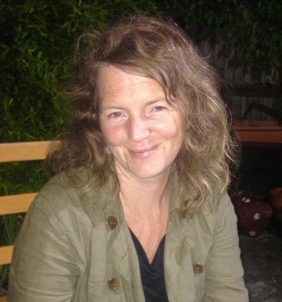
By Joan Martinez-Alier
Hali Healy started to work from London with the ICTA UAB in 2008. In 2013 she was co-editor of our collective book from the CEECEC project, “Ecological economics from the ground up” (Routledge, London). She joined Development Studies at the University of Johannesburg in South Africa as a lecturer in 2016. She holds a BA (Anthropology) from the University of British Columbia, and an MSc (Development Studies) from SOAS, University of London. She has recently obtained her PhD degree (Geography) from King’s College London. Congratulations from the EnvJustice project!
Her doctoral thesis draws on her participation in two EU (FP7) funded projects at ICTA UAB. First, CEECEC (Civil Society Engagement with Ecological Economics / 2008-2010) aimed to build the capacity of CSOs working on environmental justice to understand and apply the tools and concepts of ecological economics to their work. Second, EJOLT (Environmental Justice Organisations, Liabilities and Trade / 2011-2015) bringing together environmental justice activists and sustainability scientists to catalogue and analyse ecological distribution conflicts and confront environmental injustice. Following the conclusion of EJOLT, Hali developed and piloted a short course on environmental justice) for British A-level students, which was run in schools in North and South London. She also ran several internet courses based on the CEECEC and EJOLT projects, and worked to build scholarly and activist connections between Southern movements for Environmental Justice and Northern ones for sustainable economic Degrowth, writing and co-organising events (talks, seminars, conferences and film screenings) for academic audiences and the general public. Hali’s thesis, entitled “The Political Ecology of Transdisciplinary Research: From Co-optation to Unintended Consequences?”, was inspired by her experience working with academics and activists on collaborative projects, as well as her consultancy work as a “civil society expert” for the EU’s Directorate General for Research and Innovation.

The project ENVJUSTICE has received funding from the European Research Council (ERC) under the European Union’s Horizon 2020 research and innovation programme (grant agreement No. 695446)